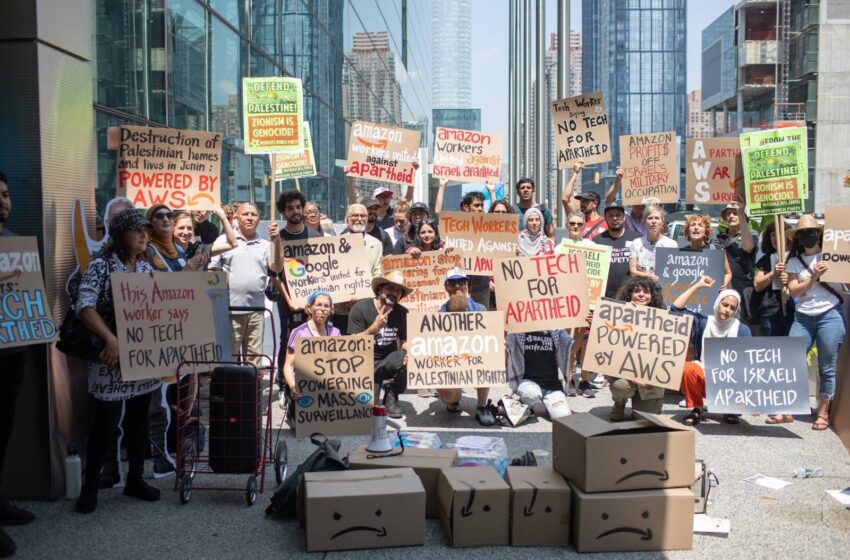
ICYDK: There Is an AI-Assisted Genocide Taking Place in Gaza
In the digital age, artificial intelligence (AI) has emerged as a transformative force, revolutionizing industries, shaping global communications, and altering the fabric of daily life. However, amidst its numerous benefits, AI also significantly impacts socio-political issues, especially with the AI-assisted technologies that have perpetuated the ongoing genocide in Palestine. It actively harms the portrayal and visibility of Palestinians.
As a content writer with expertise in technology topics, I have witnessed firsthand the profound effects that generative technologies like AI can have on numerous aspects of our world. AI’s application within conflicts is multifaceted, encompassing surveillance and security to information dissemination. Various capacities of AI technologies skew public perception and understanding of the Palestinian plight. For instance, accusations have falsely targeted Israel for disseminating fake images of beheaded babies to garner public sympathy. Similarly, Adobe has made headlines by selling AI-generated images of the war zone in Gaza.
AI is impacting the Palestinian narrative
AI’s role in spreading misleading images or narratives, such as the allegations against Israel, underscores a disturbing trend. These actions distort the global perception of the conflict, undermining the Palestinians’ struggle and suffering. Adobe’s sale of AI-generated images of the war zone further blurs the ethical lines between reality and fabrication, challenging the international community’s ability to comprehend the true devastation in Gaza.
Recent reports highlight how the Israeli military uses AI to directly target civilians for assassination, branding this so-called “precision military technology” as the world’s most advanced military might.
Deploying AI in surveillance and targeting introduces significant human rights concerns, especially when these technologies lead to civilian casualties. The touted “precision military technology” aims to reduce collateral damage but poses a high risk of harming civilians in densely populated areas like Gaza. These ethical dilemmas question the accountability of using AI to make life-and-death decisions based on potentially flawed or biased data.
Will anyone take accountability?
When a military organization like the IDF decides to use AI to ethnically cleanse a group of people mercilessly, we know too well who needs to take accountability. When the global community is refusing to be moral and ethical in the face of genocide, what makes you think they will show morals and ethics when pursuing technology?
The misuse of AI in targeting or misinformation campaigns profoundly affects Palestinian lives, leading to their dehumanization and marginalization. The chilling prospect that AI algorithms might mistakenly or purposefully identify civilians as threats based on historical patterns underscores the need for strict ethical guidelines and international oversight in developing and deploying military AI technologies.
As technological advancement casts a shadow over the war against Palestinians, the ethical use of artificial intelligence demands our immediate attention. Standing at the intersection of innovation and morality, we must push for ethical guidelines and international regulations to govern AI in warfare. The dual potential of AI to save or destroy lives places a responsibility on us—technologists, policymakers, activists, and global citizens—to ensure that our pursuit of progress does not sacrifice human dignity and life.
Follow Muslim Girl on all social media platforms for more coverage of what is happening in Palestine.




